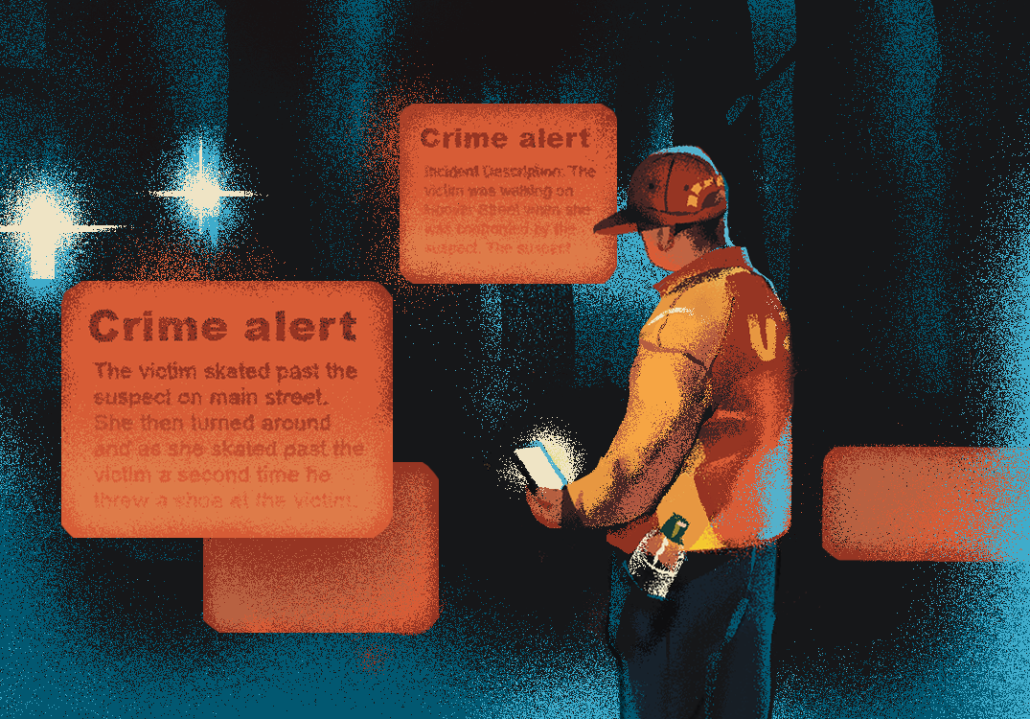Campus safety cannot wait

The Department of Public Safety, USC’s campus police force, boasts a hefty annual budget of nearly 50 million dollars according to their annual security report. This budget, outlined on the DPS website, has caused significant controversy among the USC student body, especially in recent years.
Many students feel that the budget should be completely seized and reallocated to the surrounding community. These sentiments were most prevalent during 2020 and 2021, when a coalition of USC students and staff released a petition demanding a “reimagination of public safety” at USC.
This petition, distributed via Google Form, called for the complete abolition of DPS and urged signees to support USC in severing all ties with law enforcement groups. However, other individuals affiliated with the University still feel that the DPS budget should remain as it currently stands due to the high levels of crime in the area surrounding campus.
While each sentiment holds its respective merits, it’s important to recognize that DPS’s presence in and around USC’s campus is likely going nowhere, even in the face of recent student outcries for its abolition. With this in mind, it’s imperative that we, as students, focus our efforts towards holding DPS accountable and demanding the highest quality service from them.
According to Interim Chief David Carlisle, the Department’s goal is to “provide a safe and secure environment on campus and in the local USC community that allows students, faculty, staff and campus visitors to realize their academic and social pursuits.” However, an overall sense of distrust has been looming over the name “DPS” recently.
In recent years, Black and brown students at USC have expressed that they feel discriminated against and disrespected by DPS. A particularly visible incident in 2019, when DPS fenced off Black and Latinx tailgaters on campus in an allegedly discriminatory fashion, inspired a Change.org petition which garnered over 800 signatures. The petition did not call for abolition; rather, it asked for a resolution to be found.
Additionally, students at USC consistently raise concerns about timing inconsistencies in DPS’s Crime Alert system. Crime alerts often arrive in my student email hours after the initial incident, which puts students, staff and community members in danger.
The bottom line is that students at USC do not currently have full confidence in DPS. As paying-students whose dollars fund the annual DPS budget, we should be able to trust that our campus security is making consistent efforts to create a safe environment for all students.
Although recent attempts have been made, there is still room for improvement. For example, the implementation of “security ambassadors” — also known as “Yellow Jackets” — began in 2009 with the hopes of increasing student safety at night time. These ambassadors can be seen standing on the corners of neighborhoods and prominent blocks near campus. However, according to the DPS website, these individuals are not required to intervene in potentially dangerous situations and are only compelled to report issues when they arise.
Among students, Yellow Jackets have gained a disputed reputation due to incidents of texting, sleeping and unsolicited commentary while on the job. Posts on r/USC describe multiple encounters with security such as Yellow Jackets making flirtatious advancements, uncomfortably following students several dozen feet and harassing students outright. Stories such as these have led to a communal distaste towards the University’s security efforts.
In order to improve students’ trust in campus security efforts, the University should focus on a stricter hiring process that seeks to recruit individuals who are passionate about providing safety and security. In addition to problematic incidents with security ambassadors, DPS has been known to hire police officers who were fired from the Los Angeles Police Department for various infractions, so reforming the hiring process to emphasize experience, diversity and genuine interest in safety could improve both the policing and security ambassador initiatives at USC.
Additionally, USC must confront its history of policing discrimination in order to foster equity and trust among students. No student should feel as though they are targeted by DPS for their race, gender or sexuality. In an effort to curb discriminatory actions, students at USC should have the opportunity to speak directly to individuals at DPS. As of right now, DPS takes feedback online through its website, however, we should work to create an environment where in-person confrontation is facilitated in order to make students feel truly heard. Change is better fostered through real conversation, and students deserve to have their grievances recognized through more than an online portal.
If DPS truly wants to commit to safety and convince the student body that it is deserving of its annual budget, it must make genuine commitments to attentiveness, education and the hiring of qualified individuals through both its security ambassador initiative and officer training process.

